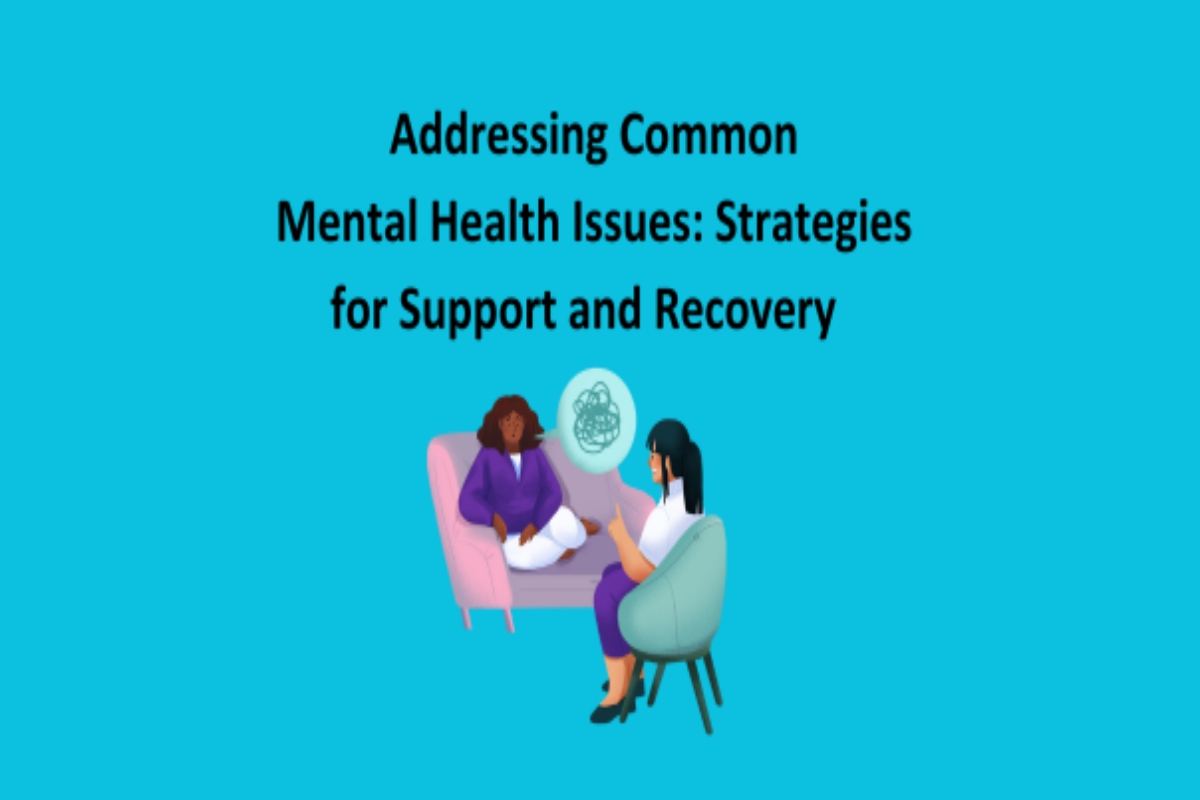Your mental health is fundamental to your physical and emotional wellness and ability to carry out daily tasks. There is a critical need for healing processes and supporting techniques as the public’s understanding of mental health issues rises. In this blog, we will explore common mental health issues, providing valuable information on good coping mechanisms and the significance of seeking professional help.
This blog will provide helpful information to assist you on your path to a better mind, whether you’re thinking of getting a Mental Health Certification or just looking for advice on how to deal with Mental Health Issues.
Table of Contents
Understanding Mental Health Issues
The complexity of mental health issues may be better understood if we acknowledge the wide variety of difficulties that people may encounter. People from all areas of life are affected by mental health issues, which may take many forms, ranging from mild disorders like depression and anxiety to more serious ones like bipolar disorder and schizophrenia. The first step in creating a more understanding and caring society is to recognise how common these problems are. Individuals might be better prepared to recognise and handle these difficulties with the help of mental health programs.
The Role of Mental Health Certification
People who want to help others who have a mental illness may get the training they need via mental health certification programs. These classes cover everything from learning to recognise the symptoms of various diseases to developing more effective communication skills. People who have completed training in mental health may help others by listening attentively and empathising with their experiences; this will allow them to open up about their challenges and create an atmosphere where they can heal.
Common Mental Health Issues
Depression
Persistent emotions of sorrow and despair, often known as depression, are common among mental health issues. A robust support system, regular physical exercise, and the establishment of routines are all coping mechanisms. Becoming certified in mental health equips people to recognise the symptoms of depression and provide genuine assistance to those going through tough times.
Anxiety
Conditions like panic disorder and Generalised Anxiety Disorder (GAD) are examples of anxiety disorders that may significantly affect everyday living. Mindfulness, deep breathing, and Cognitive Behavioural Therapy (CBT) are all helpful techniques for anxiety management. Individuals may better aid others in coping with and overcoming anxiety with the strong knowledge obtained via mental health certification.
Bipolar Disorder
Extreme highs and lows, from manic to depressed, characterise bipolar disorder. People who suffer from bipolar illness often struggle to stay stable, which impacts their ability to go about their everyday lives. Mood monitoring, medicine compliance, and psychoeducation are all supplementary tactics. Acquiring mental health certification helps people recognise the signs of bipolar illness, which in turn helps others understand and assist persons dealing with this complicated condition.
Strategies for Support and Recovery
Encouraging Open Conversations
The only way to end the discrimination and misinformation that people with mental health issues face is to have honest dialogues about it. With the knowledge and confidence gained from a mental health certification, people may start and lead these conversations, fostering an accepting atmosphere where people feel safe enough to ask for assistance.
Building a Supportive Network
Recovering from mental health issues is much easier with a robust support system. When dealing with mental health issues, having supportive friends, family, and coworkers may be an enormous help. Certification in mental health focuses on building these networks and providing resources to help people do just that.
Prioritising Self-Care Practices
Everyday life may be hectic, and it’s easy to forget to take care of yourself. For mental health, it is essential to make self-care a regular part of life. Self-care practices such as engaging in hobbies, practising mindfulness, and getting enough sleep may enhance a person’s emotional resilience. Individuals are reminded to prioritise their well-being among life’s pressures via mental health certification, which highlights the need for self-care as a key part of mental health rehabilitation.
When to Seek Help
While it’s important to have loved ones there for you, there are times when you need a professional. Individuals navigating the intricacies of their mental health journey might benefit from the guidance of mental health specialists, such as psychiatrists, psychologists, and counsellors. Individuals who have completed mental health certification programs can better identify the signs that call for professional assistance, increasing the likelihood of prompt and effective intervention.
Conclusion
Ultimately, it takes a combination of individual insight, community comprehension, and expert knowledge to tackle prevalent mental health concerns. Getting certified in mental health helps build a more caring and accepting society and increases one’s understanding of the field. A happier and more compassionate society is possible when people actively create an environment that values mental health by using the tactics outlined here.
Please keep in mind that there is no end in sight to the fight for mental health care and recovery; even the smallest of actions helps bring us closer to a society where those struggling with mental illness are understood, valued, and given the help they need.

